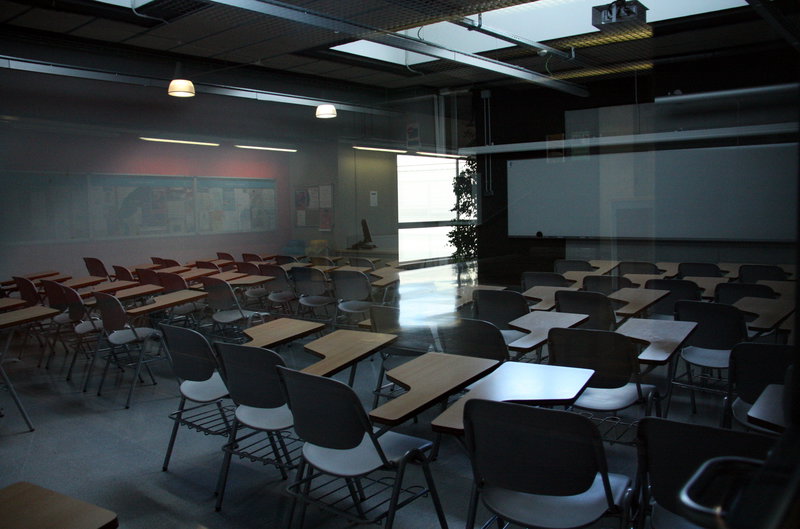Student body on strike
Some 7,000 students take to the Barcelona streets in the first strike against Wert university decree
Protest followed in most Catalan universities including administrative bodies
Secondary school pupils and university students went on to the streets yesterday to express their rejection of the new decree from the Spanish government that reduces the duration of basic university courses from four to three years from the next academic year. The unions managed to mobilise a large part of the student body, with 7,000 students protesting on the streets of Barcelona.
The strike was supported in an unequal manner in the different faculties of public universities, and was non-existent in private institutions. According to the Secretaria d'Universitats i Recerca, the stoppage was widely joined in the faculties of Law, History and Geography, and in the Edifici Històric of the Universitat de Barcelona; in Arts, Politics and Law in the Universitat Autònoma de Barcelona; in Barcelona's Escola Tècnica Superior d'Arquitectura, in faculties of the Universitat Politècnica de Catalunya; and on the Poblenou and Ciutadella campuses of the Universitat Pompeu Fabra.
According to the government, in the Universitat de Lleida there was “normality on all campuses” except for Filologia, while in the Universitat Rovira i Virgili, there was irregular support of the strike depending on the campus or faculty. In the Universitat de Girona, the stoppage was mostly supported in the arts faculties. The dean of UdG, Sergi Bonet, also joined the strike.
The coordinator of the union, the Associació de Joves Estudiants de Catalunya, Oriol Recasens, praised the mobilisation as a “success” and called for the “withdrawal of the decree, as all it does is devalue degrees, create inequality among universities and cause a rise in the cost of studies”. “We will not accept any reform of the school and university system without the consensus of the entire education community,” he added.
The student mobilisation received the blessing, and in some cases outright support, of university administrative institutions. Even though the deans of Catalan universities do not oppose the reduction of degree courses to three years, they are against the rushed manner in which the new system has been put into place. The universities fear that the reform will bring with it a decline in financing, which is linked to the degree courses they offer.
Rejection of new RE curriculum
M.R.The new religious education curriculum as part of the Spanish government's education reforms to be taught in primary and secondary schools from the next academic year includes children praying in class. The reform, commonly known as the Wert law, also establishes evaluation criteria such as children “recognising the inability of people to achieve happiness by themselves”. The curriculum was published in an official government bulletin on Tuesday.
From the next academic year, schools will have to offer RE as an optional subject. The new curriculum was adapted by the Conferencia Episcopal Española, after an agreement between the government and the Vatican.
Catalan education minister, Irene Rigau, stated that “pubic schools are secular” and that religious instruction was the sphere of “parishes and not schools”. The Federació d'Associacions de Mares i Pares d'Alumnes de Catalunya, yesterday advised pupils not to take the reformed subject.

